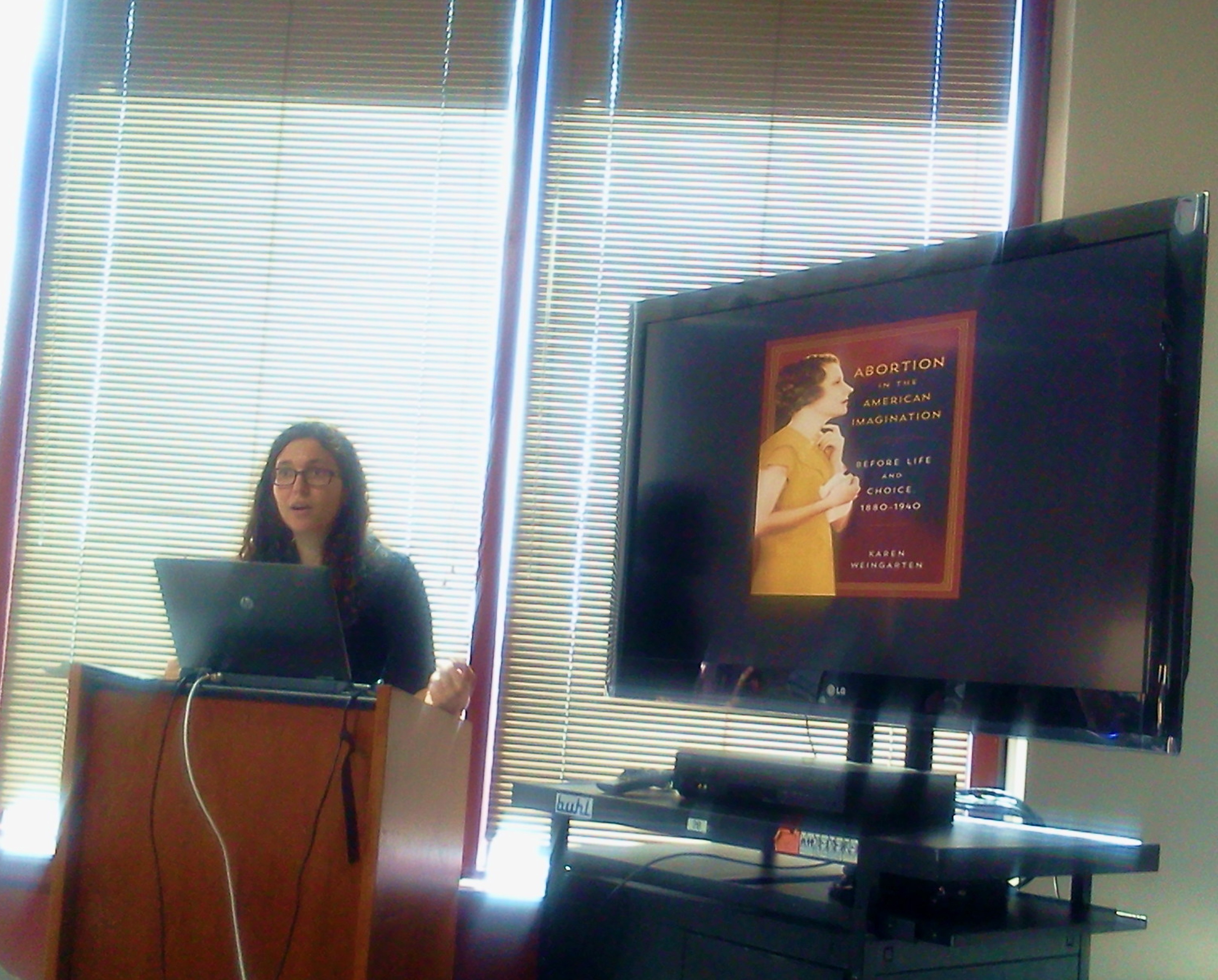On Sept. 22, Karen Weingarten, assistant professor of English, spoke about her recently published book titled Abortion in the American Imagination: Before Life and Choice, 1880 – 1940 in colloquia hosted by the Women’s Studies department.
Weingarten discussed how early 20th century literary works, films and culture could help us understand the issue of abortion.
“I argue in my book that by looking at abortion rhetoric from the early 20th century, we can see how anti-abortion sentiment emerged from anxieties about race, immigration and changing economic conditions,” Weingarten said. “I think that the current abortion debate is still influenced by those same factors, but the current controversy about abortion tends to present it as two sides—you’re either pro-life or pro-choice.”
In her speech, Weingarten talked about the case of the “trunk mystery,” where two fetuses were found in a trunk, and the film “Cora Unashamed.” It is based on a short story by the same name in “The Ways of White Folks,” a collection of short stories by Langston Hughes.
“One of the things I found fascinating about the representation of abortion in early 20th century American literature is that the terms through which abortion was discussed were quite different,” she said.
Roe v. Wade was also discussed in Weingarten’s presentation. In 1970, Norma L. McCorvey, under the name Jane Roe, filed a lawsuit claiming a Texas law criminalizing most abortions violated her constitutional rights. The lawsuit was filed against Henry Wade, then-District Attorney of Dallas County, in a Texas federal court. When the Texas court ruled that the law violated the Constitution, Wade appealed to the U.S. Supreme Court.
Three years later, the Supreme Court ruled that the Texas statute was unconstitutional. As a result of this landmark decision, abortion was legalized throughout the United States. Despite it, American society still considers the issue of abortion very controversial and the discussion about it is far from over.
Weingarten believes that it is very important for the Queens College community to discuss controversial issues like abortion.
“I’m committed to reproductive justice and I think one of the most important ways to educate people about abortion and to normalize the procedure is through talking about it,” Weingarten said.
Weingarten stated, based on statistics from the Guttmacher Institute, an estimated 50 percent of pregnancies in the U.S. are unplanned and four out of 10 pregnancies end in abortion.
“Even though contraceptives are available to women and men, they’re not equally available, and unfortunately, because of abstinence-education programs in high schools, many people end up not being properly informed about how pregnancy can be prevented,” Weingarten said.
“While abortion is legal in the United States, it’s often not accessible to many women, especially those in lower economic brackets or those living in rural conditions where an abortion clinic is not close by. As a result of these inequalities, many women are forced to carry their pregnancies to term, which dramatically changes and limits their future opportunities,” Weingarten said.














